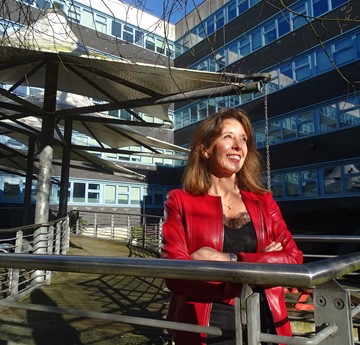At the forefront of latest research to help keep our children safe online is Professor Nuria Lorenzo-Dus.
Holder of a Personal Chair in the Department of Applied Linguistics, Nuria has devoted her 20-year-career at Swansea University to increasing understanding of how language shapes and is shaped by reality.
Nuria’s principal focus is on “problematic” language use, ranging from dominant communicative styles that inhibit free expression through to manipulative communication with cyber-criminal intent. It is this field that has seen her examine communicative tactics used by extreme ideology groups and child sexual offenders.
“I am an enthusiastic champion of applied research and believe the rigorous and pioneering knowledge we generate in universities around the world can, and must, be translated into practical solutions to key societal challenges.”
Published extensively, Nuria’s research has been funded by United Kingdom Research Councils, The Leverhulme Trust, the United Nations (End Violence Fund), and the Spanish Government.
She has also been invited to present her work all over the world in both English and Spanish.
Nuria enjoys working with academics from other disciplines as well as stakeholders and firmly believes collaboration is the key to success.
“We have practical examples of what this kind of cooperation can achieve including a toolkit for enabling more child-centric communication in youth justice contexts, a nuanced understanding of the language and visual tactics used by extreme ideology groups online, and training resources for protecting children from online sexual abuse and exploitation.
“In my current research into keeping children safe online I lead a team of experts from linguistics, artificial intelligence, and public policy who, in collaboration with law enforcement agencies, policy makers and NGOs, are developing state-of-the-art, ethically responsible tools to support police and safeguarding professionals tackle online child sexual grooming.
“The project’s core objectives include increasing the number of children identified by professionals as being at risk, strengthening the ability of forensic lab teams to identify children being groomed, raising professional awareness of grooming, and promoting the widespread adoption of our tools across the globe.”
Nuria first came to Swansea in 2001 as a post-doctoral researcher on an EU-funded project on language aptitude and is now keen to show the same kind of encouragement she received herself.
“‘I am an enthusiastic mentor and supporter of early career researchers – they are our rising stars. I served as Dean of Postgraduate Research for more than five years and in 2019-20 I was thrilled to receive the University’s Outstanding PhD supervision award.”

